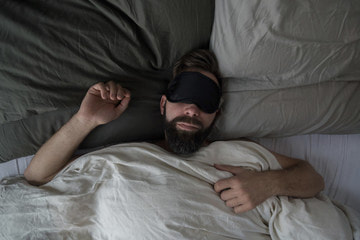|
By Dr. Jessica Warnecke, PT, DPT, OCS  Did you know that only 21% of Americans get the recommended seven to eight hours of sleep each night (Breus, 2011)? We’ve been told from a young age the importance of getting your rest and going to bed in a timely manner, yet still so many people get an average of six or less hours of sleep per night. The older we get, and the busier we get, the more factors in life we have that can keep us from going to bed early, but learning to balance all these events and get a decent night’s rest can lead to great health benefits. Several studies have linked getting a solid night’s rest with lowering the risk of weight gain and regulating calories more efficiently. According to a study done by the Proceedings of the National Academy of Sciences of the United States of America, sleep patterns play a role in the hormones that are responsible for appetite. A lack of sleep has been shown to increase the effect of the hormone Ghrelin (responsible for making you hungry) and decrease the effect of the hormone Leptin (responsible for making you feel full). Lack of sleep and the effects of these two hormones interfere with the body’s ability to regulate food intake correctly. While not getting enough sleep has been shown to decrease your body’s ability to stick to a nutritional plan, the "perfect" amount of sleep has been shown to increase athletic performances. For an athlete, getting enough sleep at night is just as important as consuming enough calories and nutrients. Getting between seven to nine hours of sleep (some athletes even benefit from as many as ten) allows the body to heal and recover. This then leads to better performance intensity, more energy, improved coordination, and increased mental functioning. If you’re looking to hit your max in the weight room or are getting ready for the marathon you’ve been training for the past few months, remember that getting a good night’s rest is just as important for your body as exercising. Along with all of the physical benefits that come with enough sleep, there are a number of psychological benefits as well. There are several studies that have shown a link between sleep disorders such as insomnia and depression. A study done by JAMA Psychiatry examined the patterns of suicide deaths over a ten year period, and lack of sleep was a contributing factor in most of these cases. Getting a good amount of sleep at night has also been shown to improve your immune system and lower your risk for heart disease or stroke. The main risk factor for heart disease is high blood pressure. Getting adequate rest every night allows your body to regulate its blood pressure on its own. This helps promote better overall heart health. With all these benefits from getting adequate sleep at night, there shouldn’t be anything stopping you from wanting to go to bed early. Developing a schedule in which you go to bed and wake up at the same time every day, even on weekends, helps your body develop a pattern that will eventually become easy to follow. Along with this, keeping your room around sixty-five degrees at night and turning off all screens an hour before going to bed will help you fall asleep faster. Trouble relaxing your body or slowing your mind before bed? Physical therapy can help! PT can help with stress management, proper breathing techniques, sleeping positions, reducing muscle tightness, joint stiffness, or pain affecting your sleep, and so much more! If you've tried a sleep schedule, turning off screens, or lowering the room temperature but still find it difficult to fall asleep, try out this mobility routine before bed to improve circulation and relax your body. Not only will you feel better rested the next day, but your body, immune system, heart, and attitude will be ready for whatever the day has in store for you! References:
1. Breus, M.J. (2011) Could You Be A Super Sleeper?. [Online] Available from: https://www.psychologytoday.com/us/blog/sleep-newzzz/201104/could-you-be-super-sleeper [Accessed 24 March 2018]. 2. Fletcher, J. (2019, May 31). Why is sleep important? 9 reasons for getting a good night's rest. Retrieved from https://www.medicalnewstoday.com/articles/325353.php#lower-risk-of-heart-disease.
2 Comments
11/12/2019 02:37:43 am
We are all in need of energy for the next activity that we will do. There are also effects and it may be good or bad, but the moral lesson of the post is to give importance and have some awareness about the danger of not resting enough. I know that we are in the busy world right now, but we should not forsake our health just to earn money because in the end, we will need some medical assistance if we neglect our health.
Reply
12/22/2021 08:31:53 pm
Thanks for pointing out that physical therapy can help with stress management and proper breathing techniques. This is helpful because my husband and I want to improve our quality of sleep. With this, we will look for physical therapy sessions on Monday that can improve our overall physical condition while avoiding injuries.
Reply
Your comment will be posted after it is approved.
Leave a Reply. |
Meet Your TherapistJessica has been in Austin, TX for the past four years. She grew up in Idaho and attended PT school at Idaho State University. She completed an Orthopaedic Residency and became a Board Certified Orthopaedic Clinical Specialist in 2016. Archives
February 2022
Categories
All
|

 RSS Feed
RSS Feed